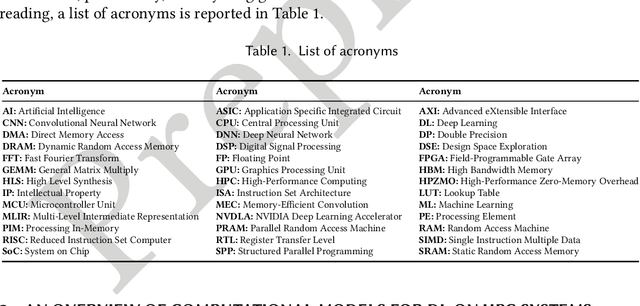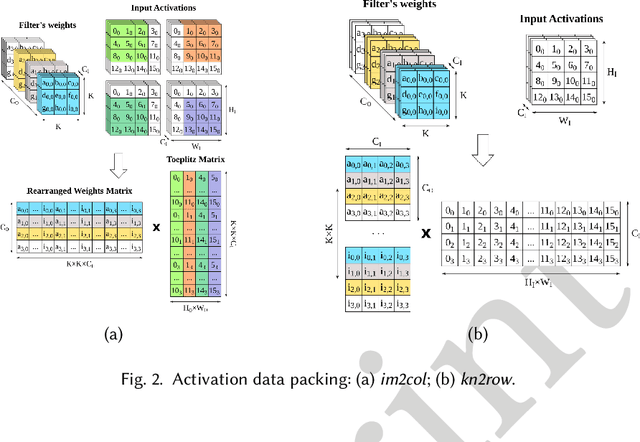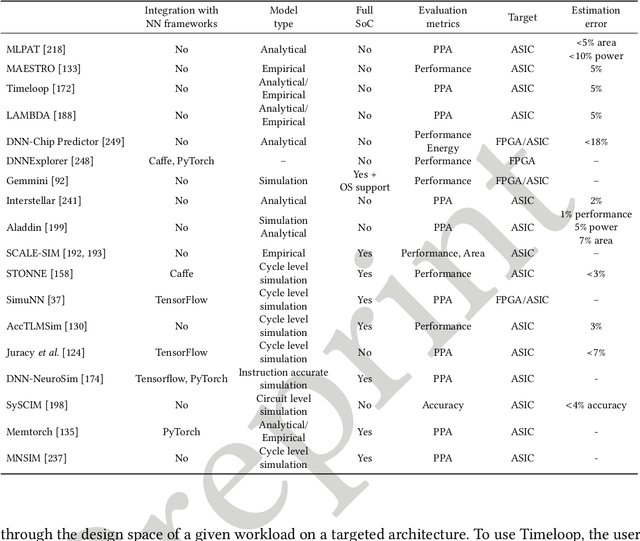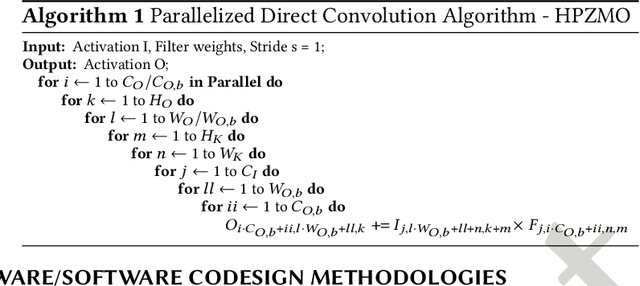Giuseppe Ascia
Deep Reinforcement Learning based Online Scheduling Policy for Deep Neural Network Multi-Tenant Multi-Accelerator Systems
Apr 13, 2024



Abstract:Currently, there is a growing trend of outsourcing the execution of DNNs to cloud services. For service providers, managing multi-tenancy and ensuring high-quality service delivery, particularly in meeting stringent execution time constraints, assumes paramount importance, all while endeavoring to maintain cost-effectiveness. In this context, the utilization of heterogeneous multi-accelerator systems becomes increasingly relevant. This paper presents RELMAS, a low-overhead deep reinforcement learning algorithm designed for the online scheduling of DNNs in multi-tenant environments, taking into account the dataflow heterogeneity of accelerators and memory bandwidths contentions. By doing so, service providers can employ the most efficient scheduling policy for user requests, optimizing Service-Level-Agreement (SLA) satisfaction rates and enhancing hardware utilization. The application of RELMAS to a heterogeneous multi-accelerator system composed of various instances of Simba and Eyeriss sub-accelerators resulted in up to a 173% improvement in SLA satisfaction rate compared to state-of-the-art scheduling techniques across different workload scenarios, with less than a 1.5% energy overhead.
A Survey on Design Methodologies for Accelerating Deep Learning on Heterogeneous Architectures
Nov 29, 2023



Abstract:In recent years, the field of Deep Learning has seen many disruptive and impactful advancements. Given the increasing complexity of deep neural networks, the need for efficient hardware accelerators has become more and more pressing to design heterogeneous HPC platforms. The design of Deep Learning accelerators requires a multidisciplinary approach, combining expertise from several areas, spanning from computer architecture to approximate computing, computational models, and machine learning algorithms. Several methodologies and tools have been proposed to design accelerators for Deep Learning, including hardware-software co-design approaches, high-level synthesis methods, specific customized compilers, and methodologies for design space exploration, modeling, and simulation. These methodologies aim to maximize the exploitable parallelism and minimize data movement to achieve high performance and energy efficiency. This survey provides a holistic review of the most influential design methodologies and EDA tools proposed in recent years to implement Deep Learning accelerators, offering the reader a wide perspective in this rapidly evolving field. In particular, this work complements the previous survey proposed by the same authors in [203], which focuses on Deep Learning hardware accelerators for heterogeneous HPC platforms.
A Survey on Deep Learning Hardware Accelerators for Heterogeneous HPC Platforms
Jun 27, 2023



Abstract:Recent trends in deep learning (DL) imposed hardware accelerators as the most viable solution for several classes of high-performance computing (HPC) applications such as image classification, computer vision, and speech recognition. This survey summarizes and classifies the most recent advances in designing DL accelerators suitable to reach the performance requirements of HPC applications. In particular, it highlights the most advanced approaches to support deep learning accelerations including not only GPU and TPU-based accelerators but also design-specific hardware accelerators such as FPGA-based and ASIC-based accelerators, Neural Processing Units, open hardware RISC-V-based accelerators and co-processors. The survey also describes accelerators based on emerging memory technologies and computing paradigms, such as 3D-stacked Processor-In-Memory, non-volatile memories (mainly, Resistive RAM and Phase Change Memories) to implement in-memory computing, Neuromorphic Processing Units, and accelerators based on Multi-Chip Modules. The survey classifies the most influential architectures and technologies proposed in the last years, with the purpose of offering the reader a comprehensive perspective in the rapidly evolving field of deep learning. Finally, it provides some insights into future challenges in DL accelerators such as quantum accelerators and photonics.
 Add to Chrome
Add to Chrome Add to Firefox
Add to Firefox Add to Edge
Add to Edge